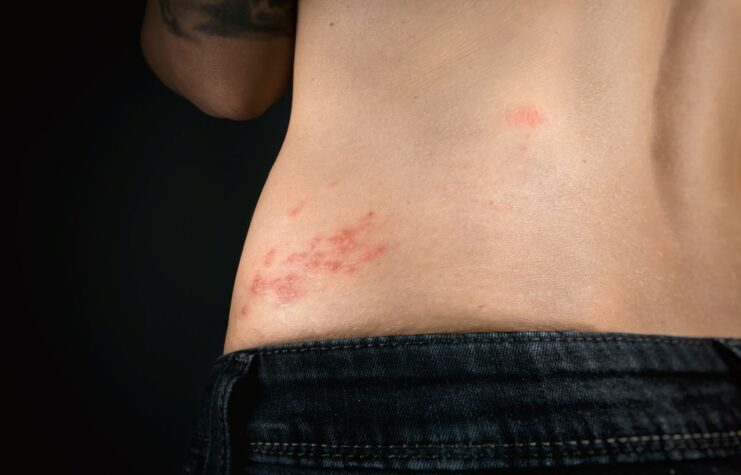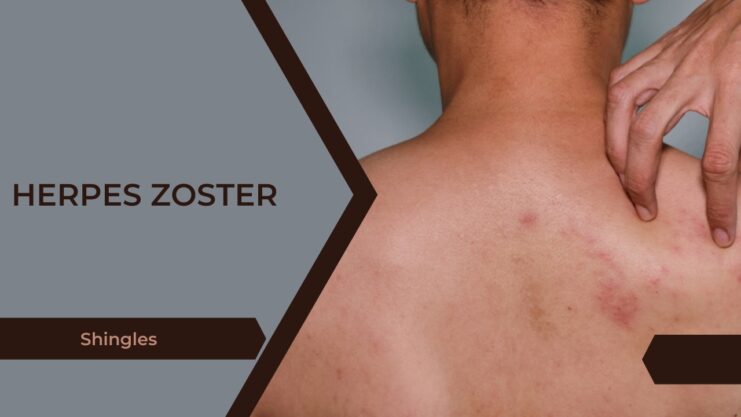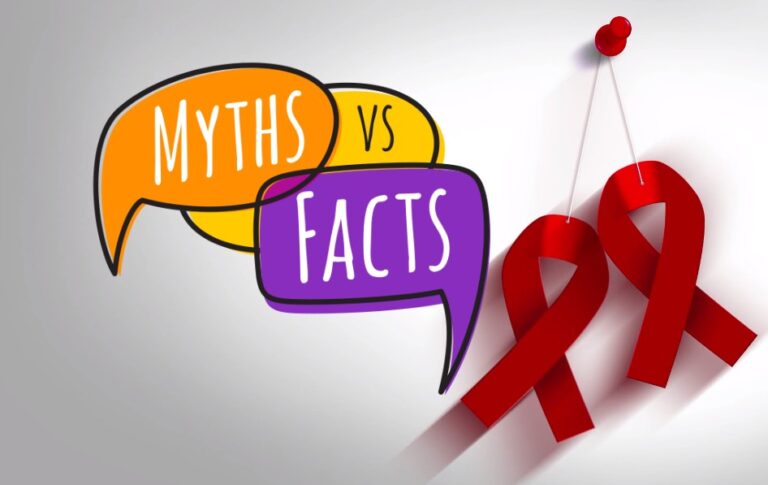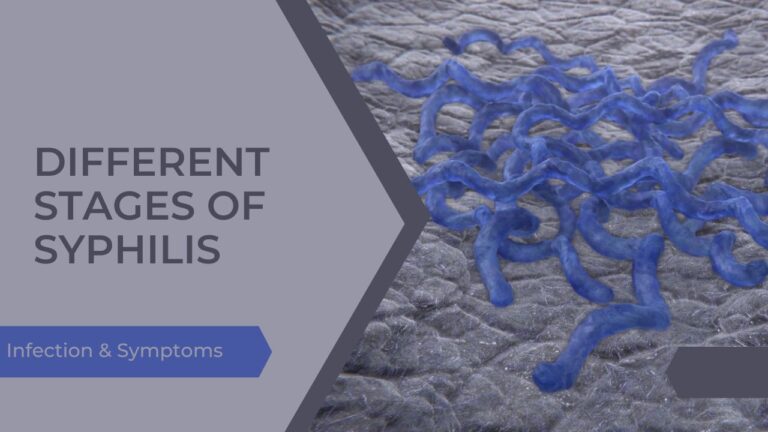Herpes zoster also known as shingles is a painful skin rash caused by the varicella zoster virus (VZV) that also causes chicken pox.
After recovering from chicken pox or after receiving chicken pox vaccine, the virus stays inactive in the body and can reactivate later in life causing shingles.
Commonly, the risk of getting shingles increases with age or if one have a weakened immune system such as living with HIV/AIDS, cancer or on treatment such as long-term steroids, radiation or chemotherapy.
Signs & Symptoms:
Shingles is a painful rash that classically develops on one side of the face or body. It may appear as a band of blisters along the path of the nerve where the virus had been inactive. Rarely, the rash may be more widespread and looks similar to a chicken pox rash which usually presents in people who have a weakened immune system.
Usually before the rash develops, one may experience pain, burning, itching or tingling in the area where the rash will appear.
After that a rash may appear which usually appears along a band accompanied by fluid-filled blisters that typically scab over within 10 days and clears up within 2- 4 weeks.
Other associated symptoms include fever, headaches, chills, upset stomach or abdominal pain.
So why is it important to diagnose shingles early?
Although shingles is not a life-threatening condition, prompt treatment can ease pain, shorten the duration on the infection and reduces the risk of complications.
Treatment would include oral antiviral medications, topical ointments, anti-inflammatory drugs and pain relievers.
Complications associated with shingles:

Post herpetic neuralgia
– this is when shingles pain continues even after the blisters have cleared.
Temporary or permanent vision loss
– this is when shingles affect the nerves of the eyes causing painful eye infections.
Neurological problems
– depending on which nerves are affected, shingles can cause inflammation of the brain, loss of facial movement, hearing or balance issues.
Secondary bacterial skin infection
– due to inadequately treated blisters.
Can I reduce the risk of getting shingles?
Yes, you can by getting vaccinated. Zostavax is currently the only shingles vaccine available.
Although the vaccine does not guarantee that you will not get shingles, it can reduce the severity of the disease and reduces your chances of complications such as post herpetic neuralgia.
Transmission of Shingles:
While shingles itself isn’t contagious, the virus that causes shingles can be spread to others. If someone who has never had chickenpox or the chickenpox vaccine comes in direct contact with the open sores of the shingles rash, they may develop chickenpox, but not shingles directly.
It’s essential to keep the rash covered and avoid touching or scratching it. Also, practicing good hygiene, like washing your hands frequently, can prevent the spread of the virus.
Risk Factors:
Apart from age and a weakened immune system, other factors can increase your risk of developing shingles:
- Having had chickenpox before the age of 1.
- A family history of shingles.
- Undergoing major surgery or physical trauma.
- Experiencing significant stress or emotional trauma.
Prevention Tips:
- Avoid close contact with individuals who have active shingles or chickenpox if you’ve never contracted either.
- Maintain a healthy lifestyle with a balanced diet, regular exercise, and adequate sleep to boost your immune system.
- Manage stress through relaxation techniques like meditation, deep breathing exercises, and yoga.
Shingles and Pregnancy:
Pregnant women who haven’t had chickenpox should avoid exposure to individuals with shingles or chickenpox. The virus can cause serious complications for the fetus. If you’re pregnant and suspect you’ve been exposed to shingles, it’s crucial to consult with your healthcare provider immediately.
Long-Term Impact:

For some individuals, shingles can lead to chronic pain that lasts for months or even years. This can significantly impact the quality of life, leading to depression, anxiety, and sleep disturbances.
Support and Coping:
Living with the pain of shingles can be challenging. Joining a support group where you can share your experiences and feelings with others can be beneficial. Remember, it’s essential to seek medical advice early to manage the symptoms effectively and reduce the risk of complications.
Final Words
In conclusion, while shingles can be a painful and distressing condition, understanding its causes, symptoms, and treatments can help in managing it effectively. Early diagnosis and treatment, combined with preventive measures, can significantly reduce the impact of this disease.
Related Posts:
- The Meaning Behind the Upside-Down Pineapple: More…
- Screening for Genital Herpes: Knowledge is Power
- Vape Pen Not Charging Green Light - How To Fix It
- 15 Steps To Fix Your ONN Wireless Mouse Not Working!…
- YouTube Vanced Not Working: Does Vanced Really Exist Now?
- Curved Monitor: Pros And Cons - Should You Get It Or Not?













